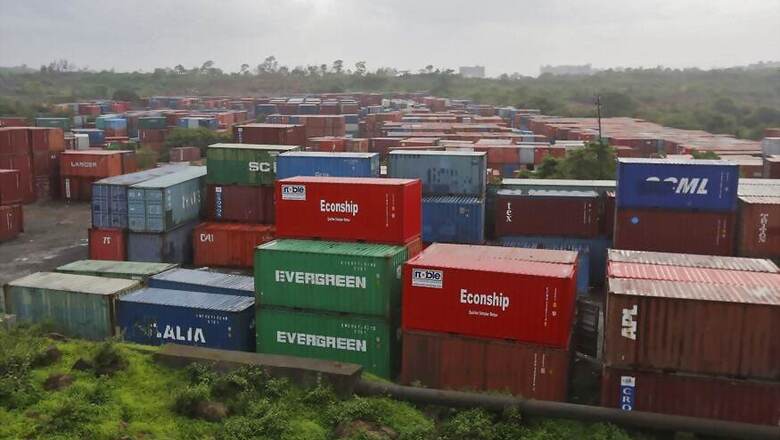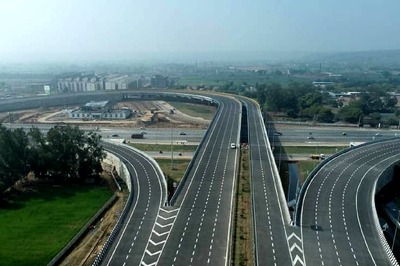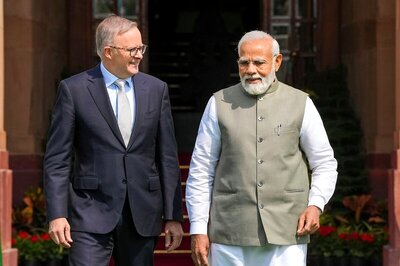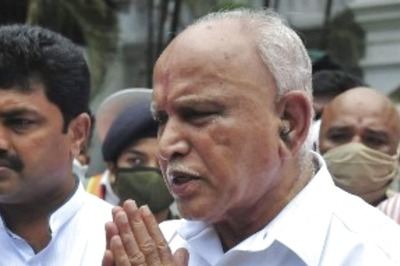
views
The government on Friday approved a scheme for reimbursement of taxes and duties to exporters with a view to give boost to the country's dwindling outbound shipments.
A decision in this regard was taken in a Cabinet meeting chaired by Prime Minister Narendra Modi here.
The reimbursement of taxes such as duty on power charges, VAT on fuel in transportation, farm sector, captive power generation, mandi tax, stamp duty and central excise duty on fuel used in transportation would make Indian products competitive in global markets, the Commerce and Industry ministry tweeted.
The measures are compliant with WTO norms, it mentioned.
The sectors and products under the remission of duties and taxes on export products (RoDTEP) will be notified in a phased manner and the MEIS benefit for those sectors and items will be withdrawn.
Finance Minister Nirmala Sitharaman had announced RoDTEP scheme in her Budget speech on February 1.
Briefing the media about this decision, Commerce Minister Piyush Goyal on Friday said with the rolling out of this new scheme, the Merchandise Export Incentive Scheme (MEIS) will be "phased out".
Sitharaman had said the scheme will be launched this year itself.
The scheme is to incentivise exporters at an estimated cost of Rs 50,000 crore to the exchequer.
It is proposed to digitally refund to exporters, duties and taxes levied at the Centre, State, and local levels, Sitharaman had said while presenting the Union Budget for 2020-21.
These taxes include value added tax (VAT), electricity duties and fuel used for transportation, which are not exempt or refunded under any other existing mechanism.
The move assumes significance as a WTO dispute resolution panel has ruled that MEIS was not in compliance with global trade rules.
Under the World Trade Organisation (WTO) rules, certain duties like state taxes on power, oil, water, and education cess are allowed to be refunded.
The country's exports contracted for a sixth month in a row by 1.66 per cent in January to USD 25.97 billion.
During April-January 2019-20, exports slipped 1.93 per cent to USD 265.26 billion, while imports declined 8.12 per cent to USD 398.53 billion, leaving a trade deficit of USD 133.27 billion.




















Comments
0 comment